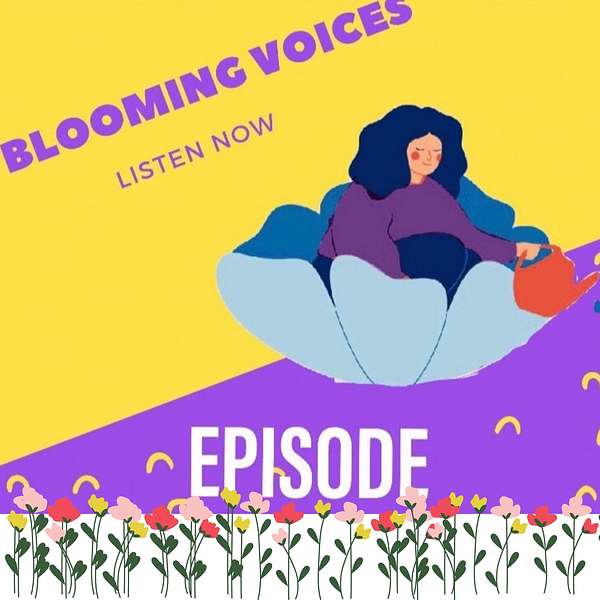
Blooming Voices Podcast
Do you listen to all the experts on podcasts and think, “no wonder they’re experts; they’re awesome, they’re smart, they’re....” Stop right there! You’re awesome!You have a story to tell, and there really is no one like you. Embrace your story. Celebrate yourself. Of course we all have room for growth, and no one is ever done growing. Just because you don’t know the answer to something today doesn’t make you a loser or does it? Naaa, of course it doesn’t! It makes you a human on life’s journey, just learning new things day to day! The more you know, the more you know what you don’t know. You're a little bud in the process of blooming... ready to share your truth and grow.Join two halves of two twin pairs as we share inspiring stories and a variety of perspectives about identity. We talk about our own unique backgrounds and how it unravels in the pursuit of finding identity, individuality, and an authentic voice. Religion, confrontations, twin questions, equality, being voice over artists, entrepreneurship, travel, movies... nothing is off limits! A true variety of topics and questions is how we grow best.
Blooming Voices Podcast
Episode 27 - You Get to Be You
•
Jordan Drayer and Dalia Ramahi
•
Season 2
•
Episode 27
Let your voices really bloom, especially those who have a hard time asking for what they need, giving negative opinions, and more. We discuss why this is hard and ways to practice standing up for yourself.
Takeaways
- When you want something, being direct is the best way.
- Women tend to struggle more than men in asking for what they want or need from others, as society’s rules tell women to be non-aggressive.
- There will always be safety in numbers, but we must learn to stand up for ourselves.
- People pleasing is a survival mechanism. Women naturally need bonds, so doing something to disrupt those is scary.
- Feminism has a negative connotation to many because it's seen as extreme, but the reality is there are still too men and women who are not accustomed to a woman speaking powerfully and being able to create healthy boundaries that tell people how they get to speak to her.
- Self-awareness is key in changing a behavior or pattern that doesn’t work for you. Once aware, you can begin to acknowledge, accept, and figure out how to move forward.
- Every thought we have is a choice. Human beings are wired for negativity bias as a survival mechanism.
- If a negative belief keeps recurring, label it a story and dismiss it.
- Having a positive mindset takes work. Tell yourself that you deserve good things, even if you have to fake it until you believe it. If that doesn’t feel right, pay attention to your current thoughts without judgment.
- When learning to use our voices and trying to be positive, beware toxic positivity. This is where you negate life experiences and dismiss the experiences of others with things like “just move on” or “it’ll be fine,” or any other cliche. This can be harmful.
- Allow yourself to feel feelings, and you don’t need to berate yourself for it or create correlations.
- Take a moment to express gratitude for who you are and where you're at in this moment without judging yourself for it.
- There are different kinds of therapy, some that focus on the past and some that focus on right now. Choose what feels best to you and do research.
Resources
- https://whatwillittake.com/inspiration/women-here-are-10-important-ways-to-use-your-voice/
- https://www.forbes.com/sites/civicnation/2020/02/26/mark-my-words-there-is-power-in-your-voice/?sh=56bdfe4b3b77
- https://www.verywellmind.com/types-of-psychotherapy-for-depression-1067407
- https://www.goodreads.com/book/show/3250347-the-happiness-trap
- https://www.bbc.com/worklife/article/20180612-the-reasons-why-womens-voices-are-deeper-today
- https://thepsychologygroup.com/toxic-positivity/
- https://theconversation.com/how-to-avoid-toxic-positivity-and-take-the-less-direct-route-to-happiness-170260
Socials
- Instagram - https://www.instagram.com/bloomingvoicespodcast/
- Twitter - https://twitter.com/VoicesBlooming
- Email - bloomingvoicespodcast@gmail.com
- Website - https://www.bloomingvoices.com/